
The Countries in the Horn of Africa are experiencing one of the worst food crises of the last 70 years, with devastating impact on the food security and nutrition status of over 20 million people living in the vast area between Ethiopia, Kenya, and Somalia[1].
The food crisis is the result of a series of consecutive below-average rainy seasons. Furthermore, the most recent projections forecast for the next rainy season (October to December 2022) a significantly below normal rainfall across the region. The already drought affected areas of Somalia seem destined to the extremely critical condition of famine[2].
In areas where populations live off subsistence agriculture, the lack of rain leads to very poor harvests and insufficient food for the daily family feeding.
This situation has coincided with an increase in food prices in many drought-affected areas, caused by the international situation, including the Ukraine war, and by rising fuel prices. The climate crisis is also grafted onto political, economic crises and ongoing and long-standing conflicts in the affected countries.
In Kenya, CISP is engaged in Tana River County with the REBUILD project, funded by the European Union, to improve the resilience of communities to drought and other effects of climate change.
In response to the drought-generated emergency, CISP distributed seeds and agricultural tools, supported farmers in producing climate change resistant crops, and distributed shares of money to vulnerable families, used to purchase food, agricultural inputs, and other essential goods.
With a view to medium and long-term intervention, in collaboration with partner TriM (Translate into Meaning), we have set up a system for the collection of meteorological and climatic data at community level, to improve access, understanding and use of such data within the communities themselves, with the aim of preventing the risks associated with drought.
“The meteorological data collection system provides timely warning information on potential risks that can cause disasters and helps alleviating the effects of climate change by providing timely and appropriate response mechanisms. Furthermore, the communities’ involvement in data collection ensures an inclusive process in which they take part to build their resilience to disasters and to other effects of climate change ", Anthony Njengi, Project Manager REBUILD, CISP Kenya
In areas inhabited mainly by pastoralists, a huge problem is the lack of water and food for livestock, which has led to the loss of about 9 million animals in Ethiopia, Kenya and Somalia[3].
A CISP intervention in Ethiopia, in collaboration with IRC (International Rescue Committee) and ECHO (European Civil Protection and Humanitarian Aid Operations), is currently improving the infrastructure to access water in the Borena area, rehabilitating non-functional water structures, including those for animal use, to benefit approximately 70,000 people and 150,000 animals. In collaboration with the Ethiopian Humanitarian Fund in Moyale, an area particularly affected by the drought at the border with Kenya, CISP supports veterinary clinics and local veterinarians and distributes supplementary feed to reduce the animals’ mortality rate.
“I used to have over 600 animals, including goats, sheep, cows, and lambs. Now I have less than 30 left, some of them died while I was waiting for the rain. All my life I have supported my family by raising cattle, but in the past five years I have lost all my possessions due to the drought and I have had to face great struggles to support my family, as our livelihood depends on livestock. "
Mr. Ahmed, Ethiopian pastor, beneficiary of a CISP intervention, 2022.
Such an extreme lack of food and water has prompted some 1.3 million people to move, leaving their homes in search for alternative pastures and livelihoods. The massive movements of people within the region are creating conflicts for the access and exploitation of natural resources, primarily water, land, and pastures.
In Kenya and Ethiopia, CISP creates and supports Committees for peace and dialogue between nomadic shepherds and farmers, to ensure peaceful coexistence within communities in the event of a shortage of natural resources.
Levels of child malnutrition have risen alarmingly. There are an estimated 4 million malnourished childrenin drought-affected areas alone. The population does not have access to safe water for drinking, cooking and personal hygiene, especially in rural areas. The distance that women and children walk daily to reach a source of water keeps increasing, while families are led to reduce the consumption of water for personal hygiene, raising the incidence of diseases caused by the use of dirty or contaminated water, such as cholera.
In Somalia, CISP carries out an integrated health, nutrition and access to water program, funded by the Italian Cooperation, to support affected communities in three locations in the Galmudug region. Also in Somalia, CISP implements a malnutrition prevention and treatment intervention for children under 5, pregnant women and nursing mothers, in partnership with the World Food Program.
“Drought has affected many places in Somalia, including my home village, Shimbirale. We are shepherds and most of our flock died from the drought. There is no water, no pastures. People had to move to bigger cities. I care for my children, who are in dire need of food and nourishment. CISP’s intervention is very useful. The clinic welcomes all mothers and their babies. The clinic staff is very helpful. They know we have been displaced by the drought. They know we depend on their kindness. The nutrition and medicines they give us save our children and us mothers. They give us food every month and teach us how to feed our children the nutritional porridge they provide us”. Farhiya, a drought-stricken displaced mother in Wahare Adde, Galmudug, Somalia.
[1] Special Report Food Security and Nutrition Working Group July 2022.
[2] FEWSNET, September 2022, Famine expected to emerge in Somalia in late 2022 in absence of urgent assistance.
[3] Horn of Africa Drought, Regional Humanitarian Overview & Call to Action, September 2022.